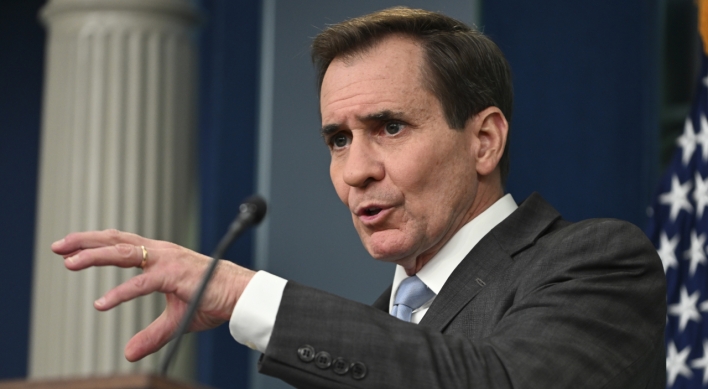Ways to transform Korean companies into global leaders
By Korea HeraldPublished : March 19, 2012 - 20:37
A foreign expert on leadership underscored that Korean companies seeking to expand into the world market should improve their global leadership readiness and transform their leaders into effective global leaders.
“Companies need to break down the current mold, while not changing Korean people into something that they are not, but you want to help people open up their leadership bottlenecks,” said Heartware Group’s Korea unit chief leadership officer Willy Linssen. Heartware Group provides management consulting to accelerate leadership and organizational development.
He explained that the current system in Korea is based on working hard to gain approval from others in order to be liked and accepted. And on average, workers at local companies confuse the need to be liked with wanting to be liked.
“Confucianism is very high on approval-seeking, which means I’m looking for people to approve of who I am as a person,” he said.
“Companies need to break down the current mold, while not changing Korean people into something that they are not, but you want to help people open up their leadership bottlenecks,” said Heartware Group’s Korea unit chief leadership officer Willy Linssen. Heartware Group provides management consulting to accelerate leadership and organizational development.
He explained that the current system in Korea is based on working hard to gain approval from others in order to be liked and accepted. And on average, workers at local companies confuse the need to be liked with wanting to be liked.
“Confucianism is very high on approval-seeking, which means I’m looking for people to approve of who I am as a person,” he said.

The opposite leadership model suggests giving people the freedom to work in a safe environment where they can open up to ideas and opinions they may have, and discuss those ideas with relevant departments within the company.
One of the ways to improve global leadership readiness is by achieving a goal as a team and reducing competing ideologies, he pointed out.
The difference between the two systems is that Korean leaders tend to be proud, self-sufficient and self-assertive, and there is a strong need to compete and win the respect of others so that they can impress others, according to him.
On the other side, achievement-oriented people are motivated by the enjoyment of success and results.
Another model of global leadership is to focus on achieving results, while not being afraid to make mistakes or please others. While Korean workers are very respectful to their superiors, they are also overly cautious in taking responsibility to avoid being held accountable.
Linssen said another attribute is setting challenging, yet realistic goals and making decisions to attain high-quality results irrespective of others.
According to Linssen, empowerment is also an important aspect of a global leader, meaning an effective leader will encourage others to ask questions, think for themselves and speak up.
“Know what is right and just believe in yourself,” he said.
The study used for Linssen’s analysis of Korean leaders was in collaboration with Human Synergistics International USA and examined what Korean people said about 513 Korean leaders in multinational organizations in Korea.
“So it’s a very Korean opinion on what effective management in Korea should look like,” Linssen said. “It’s not an outsider’s opinion so this is the mirror you can hold in front of the managers and employees on how to improve.”
While the local model might not be perfect once a company goes beyond these shores, there are limits to how far an employee can vocalize his or her thoughts.
As an example, Linssen said that in the Netherlands, Dutch people are very direct.
“That is not always very helpful so we have to learn to not say what we think there,” he said.
To find out which system works best, leaders need to ask themselves the loaded question of, “Is the current style effective in managing a team?”
If the answer is yes, the system works for their company, then there is no need to change, but if the answer is a no, then Linssen comes in with executive coaching.
“Our suggestion is to give people the freedom to work in a safe environment, to open up with what they think; they are intelligent, they have ideas, then have them talk to you,” he said.
By Yoav Cerralbo (yoav@heraldcorp.com)
-
Articles by Korea Herald





![[Music in drama] Rekindle a love that slipped through your fingers](http://res.heraldm.com/phpwas/restmb_idxmake.php?idx=644&simg=/content/image/2024/05/01/20240501050484_0.jpg&u=20240501151646)



![[New faces of Assembly] Architect behind ‘audacious initiative’ believes in denuclearized North Korea](http://res.heraldm.com/phpwas/restmb_idxmake.php?idx=644&simg=/content/image/2024/05/01/20240501050627_0.jpg&u=20240502093000)









![[Today’s K-pop] Stray Kids go gold in US with ‘Maniac’](http://res.heraldm.com/phpwas/restmb_idxmake.php?idx=642&simg=/content/image/2024/05/02/20240502050771_0.jpg&u=)